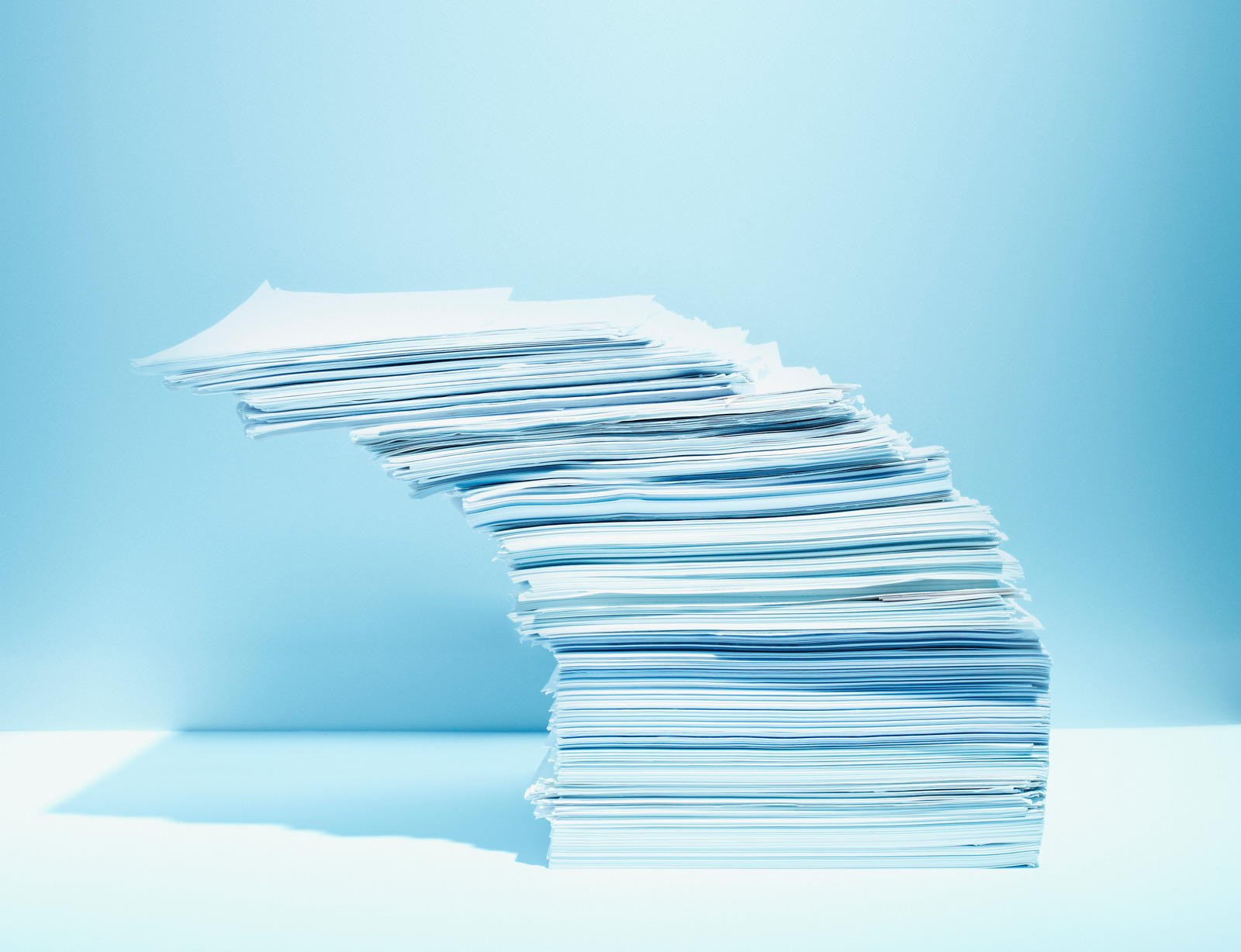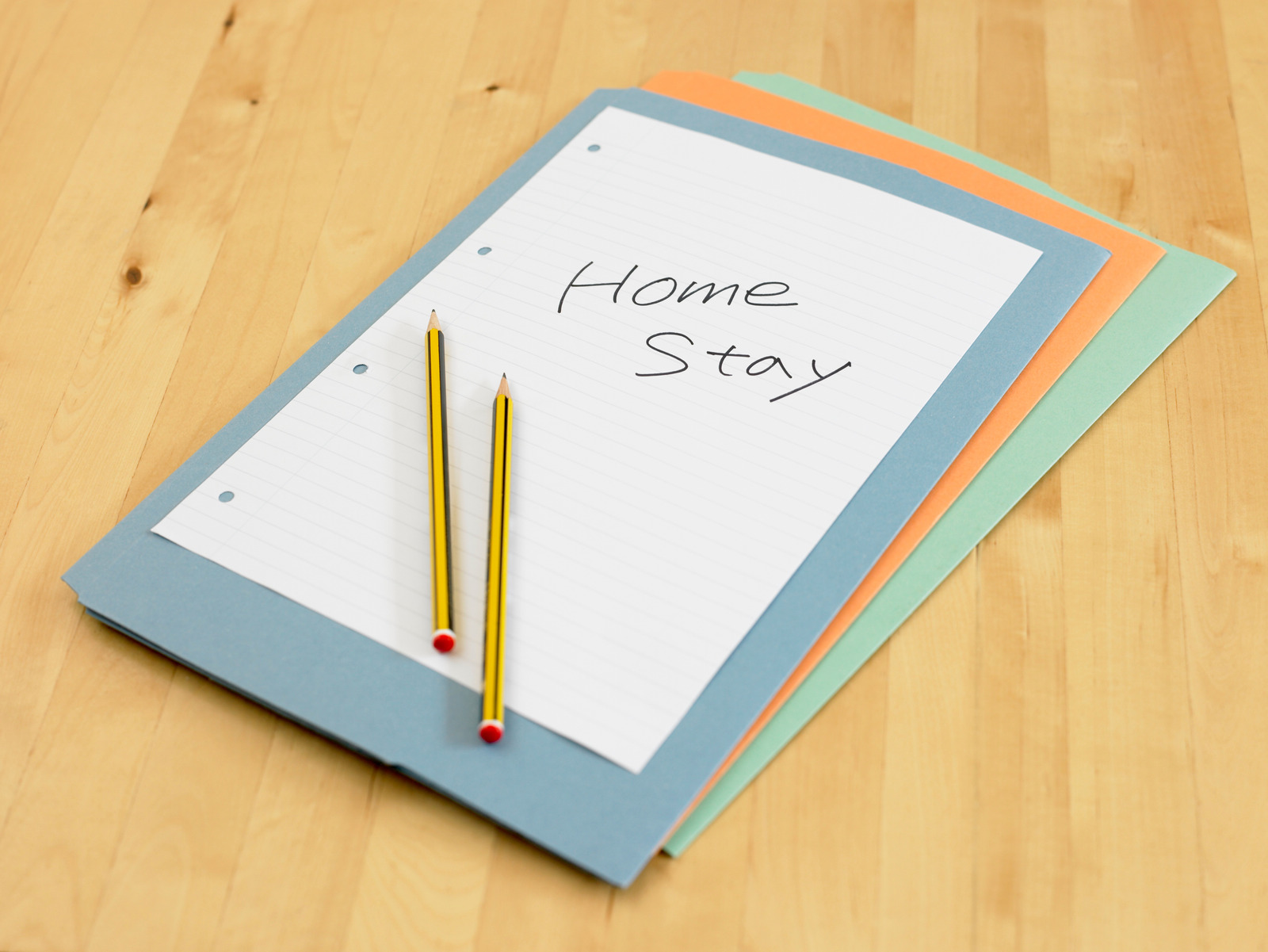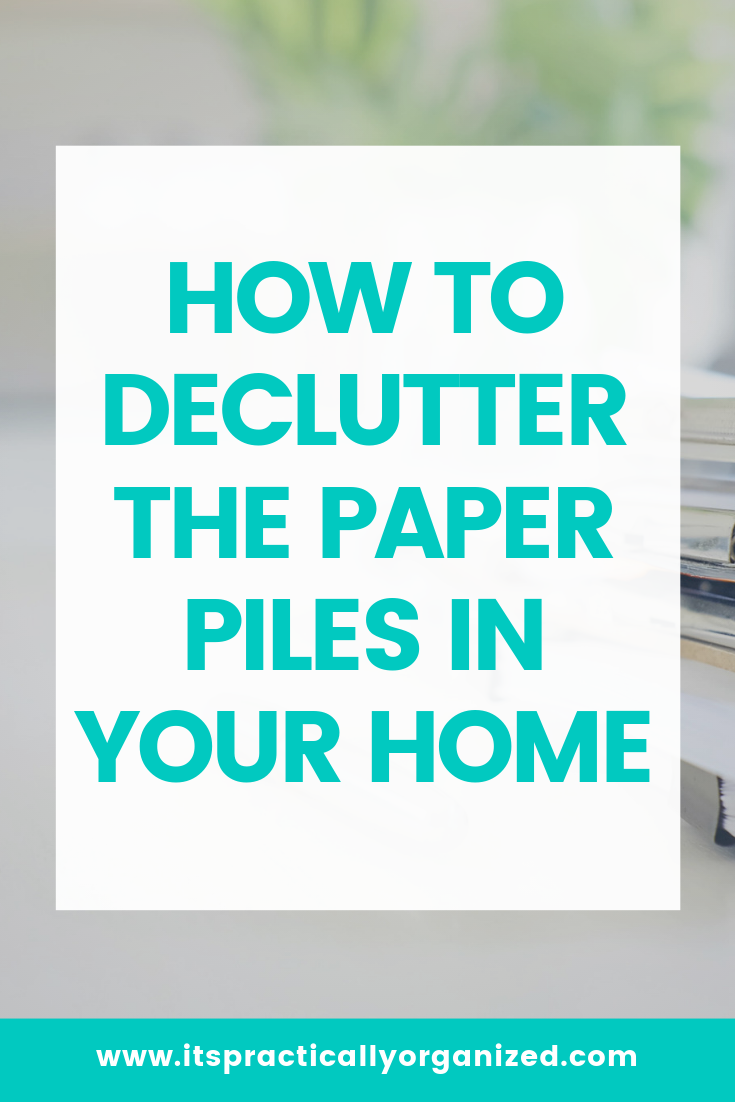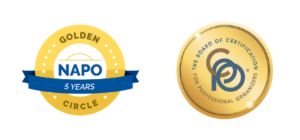Piles for Miles
So many people have trouble with paper piles, it happens.
I often see this happen after a family crisis or drastic change in the household such as having a new baby or moving. Even just a short time without your good paper managing habits can leave you with a lot of piles and feeling overwhelmed and anxious.
You’re not alone and you can turn it around.
It’s important to also remember that clutter attracts clutter so putting a couple of papers down on a flat surface immediately attracts more paper. Once there is a paper down a pile is sure to follow.
So don’t be too hard on yourself and let’s talk about ways to get back on track.

Getting Started
Sorting Your Paper Piles:
- Find the keepers: Separate out all papers that you need to keep for whatever reason (action required, to read, to file etc).
- Recycle or shred any papers that are not keepers.
- Create a few broad categories to sort your keepers. I suggest these to start:
- To Read
- Medical Documents
- Financial Documents
- Memorabilia/Photos
- At this stage you’re just sorting. You’re not creating the long term system. You’re simply organizing what you have into groups so you’re aware of what you have and need access to. Keep sorting and categorizing until all the papers are in these ‘buckets’.
- Once you’ve completed the sorting take one category at a time to organize!
For Medical Documents:
- Put the documents in chronological order.
- Determine what year(s) you want immediate access to and keep those in your active files. The older medical documents can get archived in a medical records archive file or box.
- Keep in mind that your doctors have records on file. Keep what you might want or need to bring to an appointment or want to refer to.
For Financial Documents:
- Again sort chronologically by year.
- Always consult your accountant to be sure you’re keeping the correct financial documents. You don’t need receipts for common household items nor do you need bank statements after 7 years.
- Keep the current year accessible and sort by utilities, home improvements, bank and credit card statements and receipts. The remaining financial documents can be archived by year.
For Memorabilia / Photos:
- Save photos for a separate project. They can easily distract us while we are trying to sort through paper. Store them in an acid free container in a climate controlled space if possible.
- For any paper memorabilia – sort by person. Each person can have their own memorabilia bin or box with the paper items they cherish.
- If possible think about displaying some of the items so you can enjoy the memories on a daily basis.
For To Read Pile:
- Really take a minute to evaluate if you want to or need to read the document.
- If you do, ask yourself if you have access to this information online then you don’t need the paper copy.
- If you need a paper copy prioritize the documents put in a folder marked to read.
- You can schedule a time to read the documents.
Make sure anything you are recycling does not have any personal information on it. If it does shred it properly!

Final Thoughts
Paper sorting can be tedious and time consuming.
Pace yourself and take some time to get your project completed. Work in chunks of time and if possible have a dedicated workspace you can leave as is so it’s ready when you come back to the project.
This is a great project to do with a few people. Each person can be sorting and organizing and you can make a big dent in a short amount of time.
Contact me here or my social media for more!
Let me know how you organize your papers and deal with your piles.
Want to save these ideas for later? Pin it!





